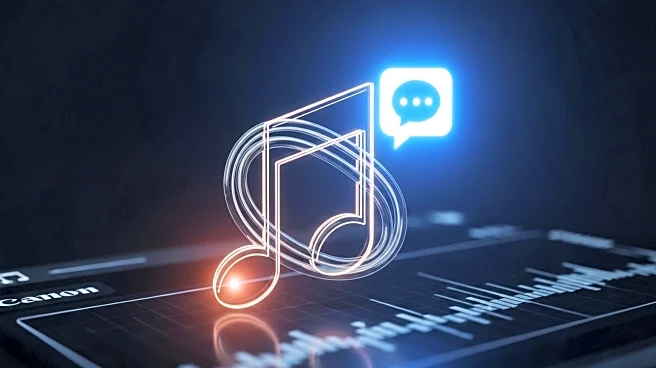What's Happening?
Spotify has integrated with OpenAI's ChatGPT, allowing users to create playlists through the AI platform. This development was announced during OpenAI's Dev Day by CEO Sam Altman, who introduced the company's latest App SDK. The integration enables users to request playlists for specific occasions, such as dinner parties, directly from ChatGPT, which then pulls songs from Spotify without requiring manual curation. This feature adds a conversational interface to Spotify's existing AI-driven playlist capabilities, such as daily mixes and Discover Weekly, which have been providing personalized music recommendations for years.
Why It's Important?
The integration of Spotify with ChatGPT represents a significant advancement in AI-driven music personalization. It simplifies the process of playlist creation, potentially enhancing user experience by offering a more interactive and intuitive way to access music. This could impact the music streaming industry by setting a precedent for other platforms to adopt similar AI integrations, thereby increasing competition. Users who prefer personalized playlists may benefit from the convenience, while traditionalists who value manual curation might view this as a loss of personal touch in music selection.
What's Next?
As AI continues to evolve, further integrations between music streaming services and AI platforms are likely. This could lead to more sophisticated personalization features and potentially reshape how users interact with music. Stakeholders in the music industry, including artists and record labels, may need to consider the implications of AI-driven playlist curation on music discovery and promotion. Additionally, privacy concerns regarding data sharing between platforms could arise, prompting discussions on user consent and data protection.
Beyond the Headlines
The integration raises questions about the role of AI in creative processes, such as music curation. While AI can enhance efficiency, it may also diminish the emotional and instinctive aspects of playlist creation, which are often driven by personal experiences and preferences. This development could spark debates on the balance between automation and human creativity in the digital age.









